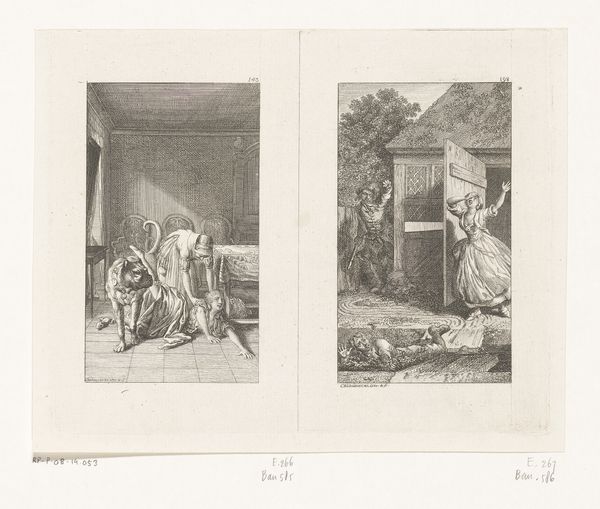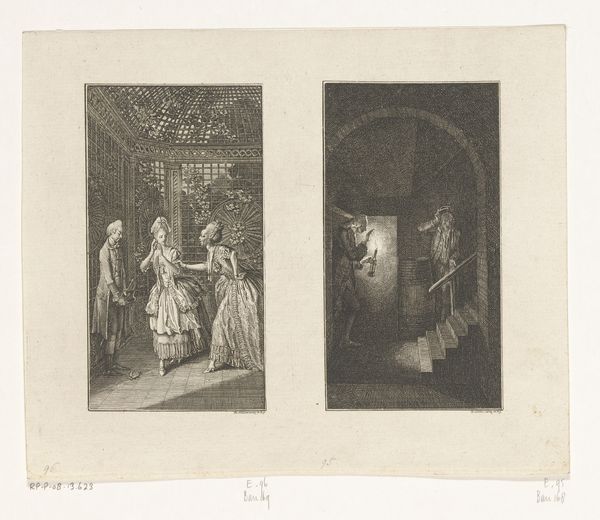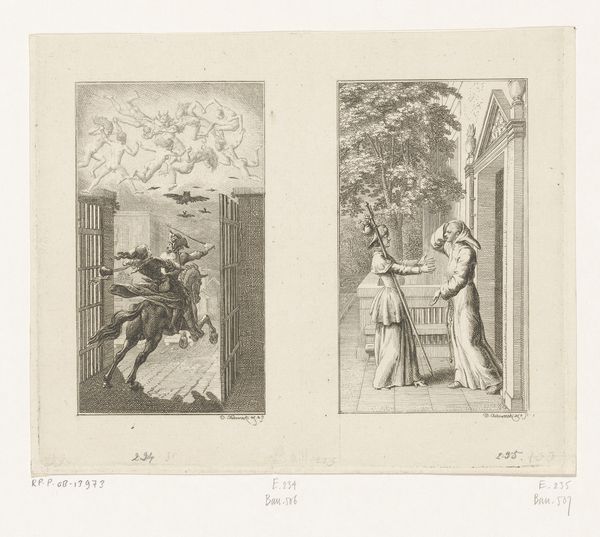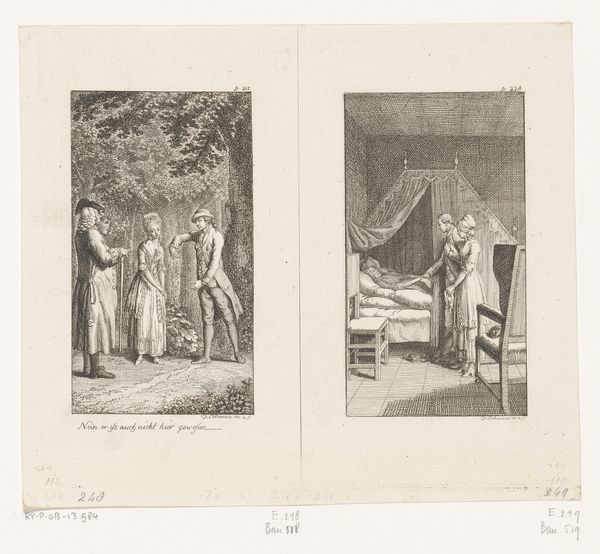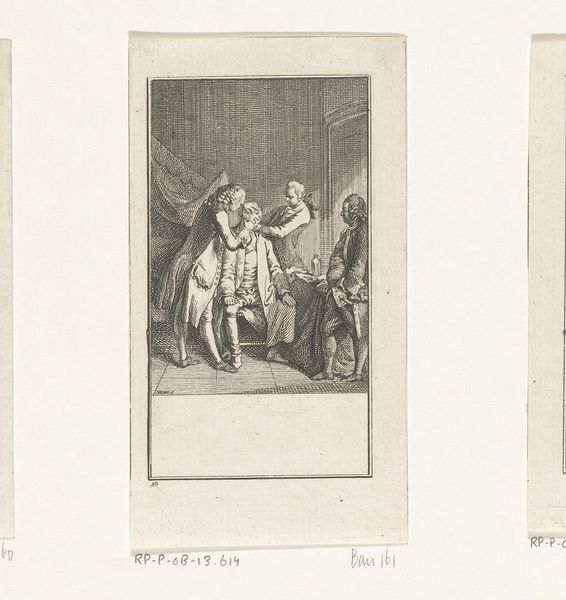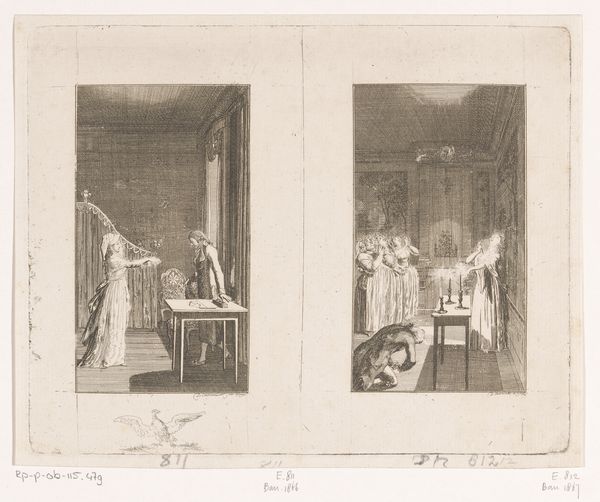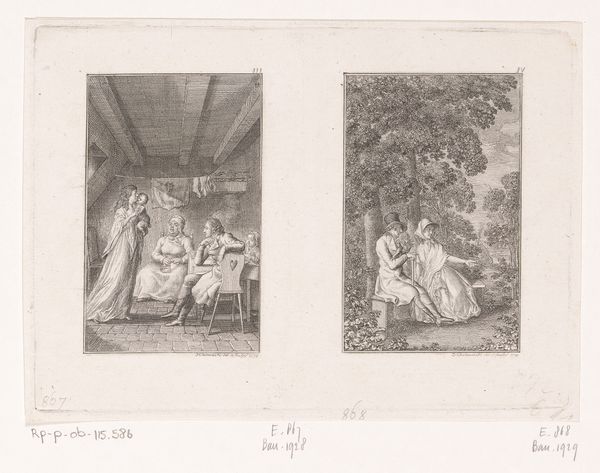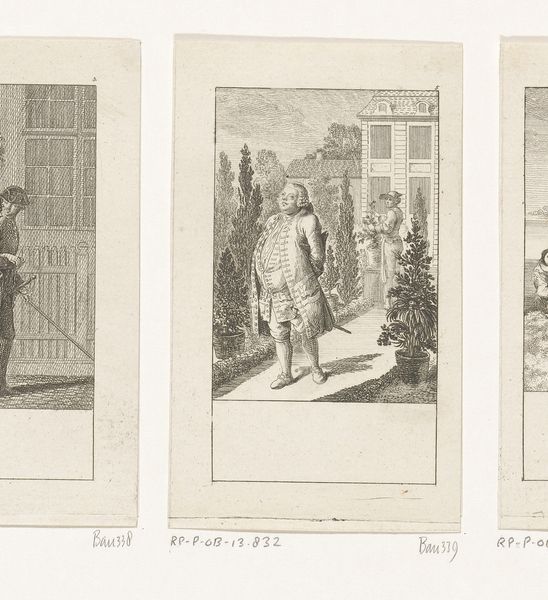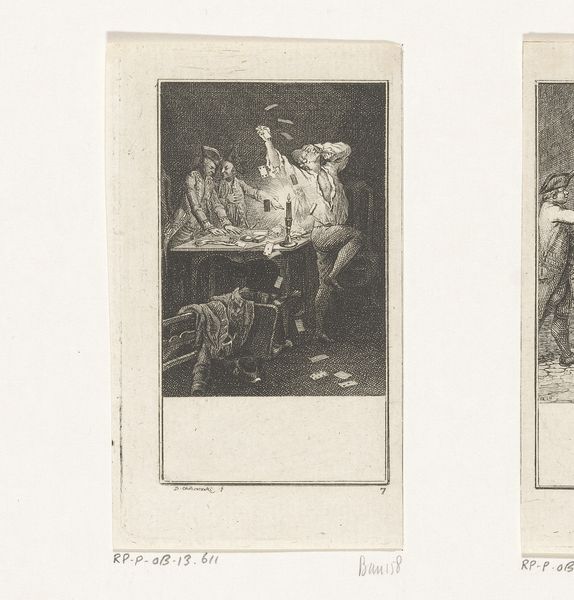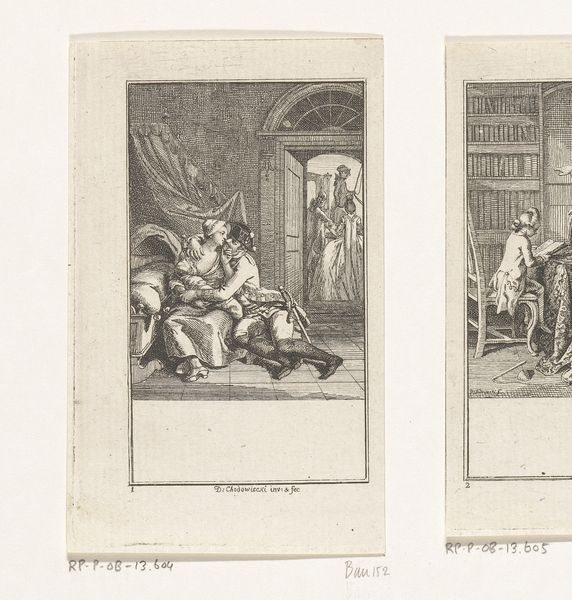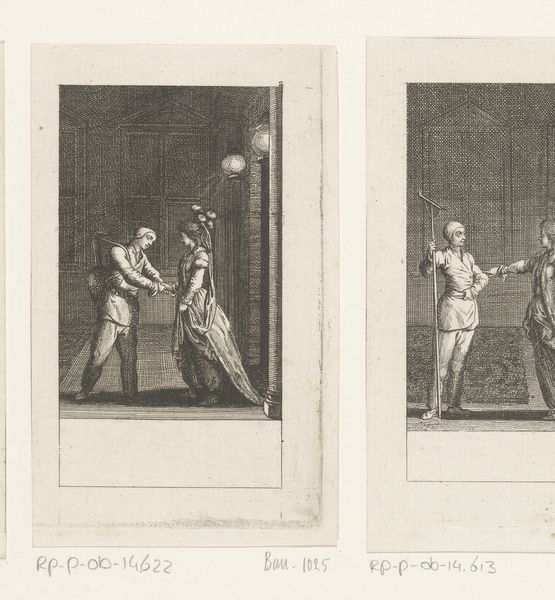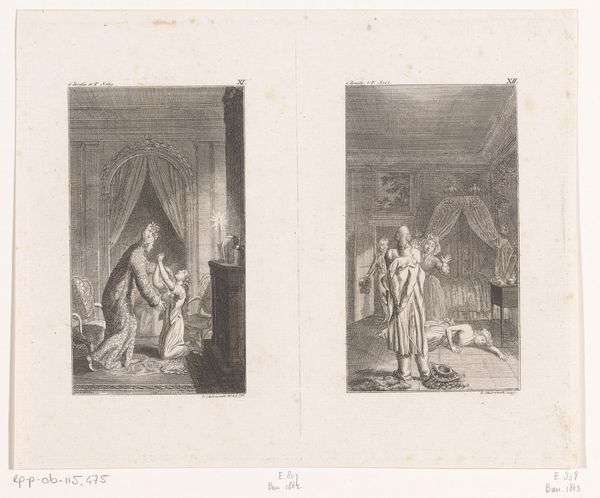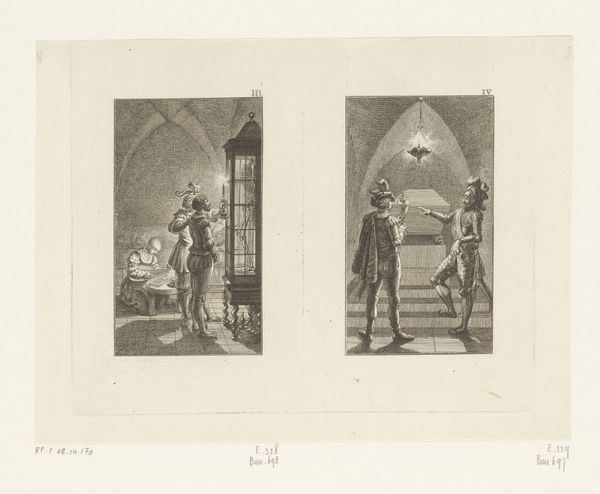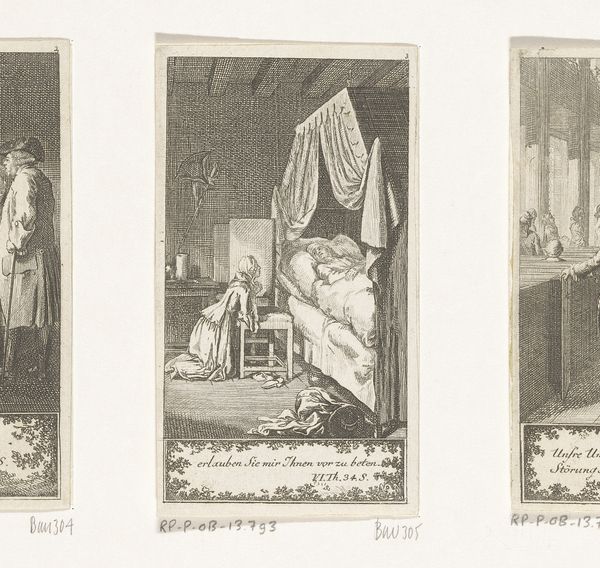
drawing, print, paper, engraving
#
drawing
#
aged paper
#
toned paper
#
light pencil work
#
narrative-art
#
ink paper printed
# print
#
pencil sketch
#
old engraving style
#
figuration
#
paper
#
romanticism
#
line
#
genre-painting
#
history-painting
#
engraving
#
realism
Dimensions: height 127 mm, width 189 mm
Copyright: Rijks Museum: Open Domain
Editor: This is “Twee voorstellingen uit de verhalen van Karl Lang,” or "Two Scenes from the Stories of Karl Lang," a print by Daniel Chodowiecki from 1799. What strikes me is the use of light and shadow to create such dramatic contrast. It feels almost like a stage setting. What can you tell me about this piece? Curator: That dramatic contrast serves a narrative purpose, doesn't it? Chodowiecki was very interested in depicting contemporary life and manners. Prints like this circulated widely and played a significant role in shaping public opinion and moral standards. These aren’t simply illustrations; they are deliberate social commentaries, visual essays if you will. Editor: So the distribution of art influenced culture back then. I had no idea. But what specific story is Chodowiecki telling here? Curator: Without direct knowledge of the Karl Lang stories, it's hard to pinpoint. Yet we can consider how such imagery functioned within a specific political context. Notice the setting: on the left we have a room, possibly suggesting an adulterous affair. The scene on the right is perhaps that of him being summoned or arriving somewhere to reveal his guilt and be judged for his sin. Editor: It sounds like prints were part of some morality tale or societal commentary on the standards and behaviours of people back then. Curator: Precisely. Chodowiecki captured not just events but a whole societal discourse. They served to promote and cement accepted standards in his contemporary society and further enhance a certain politics of imagery. Editor: I see now! It's amazing to think of art being used to actively shape society’s morals back then! Curator: And perhaps we could ask if art has relinquished its commitment to the wider social good. Has it been allowed to exist outside its influence?
Comments
No comments
Be the first to comment and join the conversation on the ultimate creative platform.
